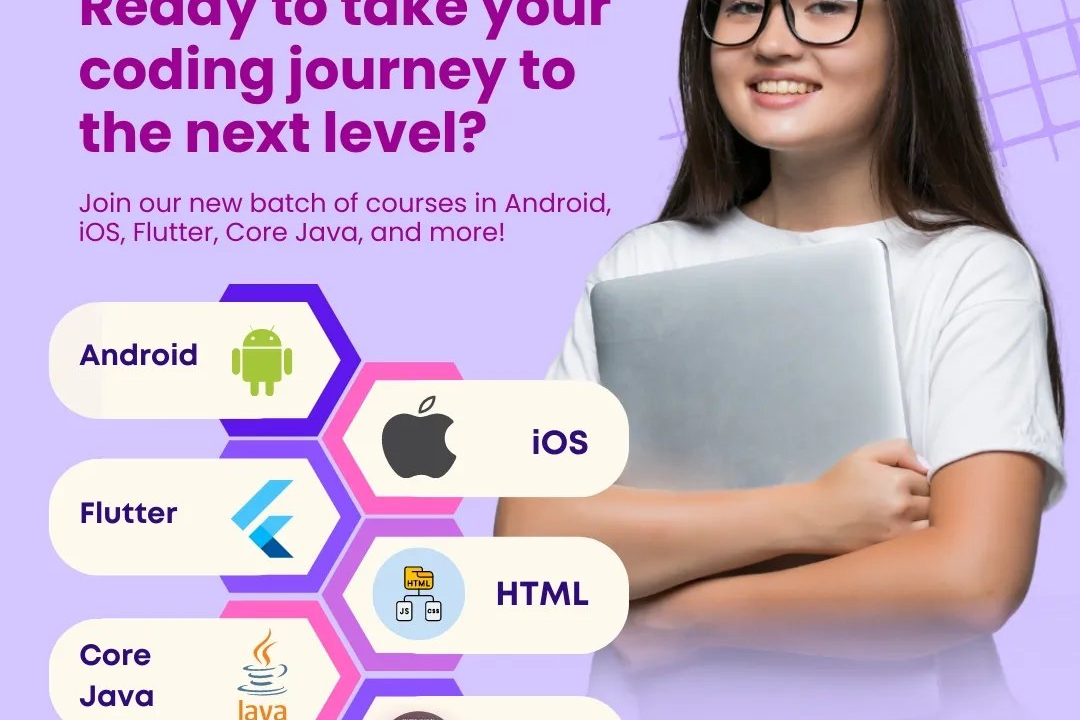Calling Php From A C++ Program
Calling PHP from a C++ program involves executing PHP scripts directly within a C++ application, ena
Calling Php From A C++ Program
Calling PHP from a C++ program is useful for leveraging the strengths of both languages—C++ for high-performance computing and PHP for server-side web development. By integrating PHP scripts, C++ applications can easily handle dynamic content generation, database interactions, and web service integrations. This combination allows developers to build robust applications that can process complex algorithms while also accessing web resources or rendering dynamic data, ultimately enhancing functionality and user experience in scenarios like web applications, APIs, or data-driven systems.
To Download Our Brochure: https://www.justacademy.co/download-brochure-for-free
Message us for more information: +91 9987184296
Calling PHP from a C++ program is useful for leveraging the strengths of both languages—C++ for high performance computing and PHP for server side web development. By integrating PHP scripts, C++ applications can easily handle dynamic content generation, database interactions, and web service integrations. This combination allows developers to build robust applications that can process complex algorithms while also accessing web resources or rendering dynamic data, ultimately enhancing functionality and user experience in scenarios like web applications, APIs, or data driven systems.
Course Overview
The “Calling PHP from a C++ Program” course offers an in-depth exploration of how to integrate PHP scripts within C++ applications, effectively bridging the gap between high-performance computing and dynamic web development. Participants will learn various methods to invoke PHP code from C++, enabling dynamic content generation, API consumption, and database management capabilities. Through real-time projects and hands-on exercises, students will gain practical experience in utilizing C++ for backend processes while leveraging PHP's server-side strengths, equipping them with the skills needed to develop versatile applications. By the end of the course, learners will have a solid understanding of both languages and their interoperability, enhancing their programming repertoire significantly.
Course Description
The “Calling PHP from a C++ Program” course provides a comprehensive overview of how to integrate PHP scripts into C++ applications, allowing developers to harness the strengths of both languages. Participants will explore various methods for invoking PHP from C++, including using system calls, shell execution, and integrating APIs. Through hands-on projects, learners will gain practical experience in creating dynamic applications, leveraging PHP's server-side capabilities within C++ environments. By the end of the course, students will confidently navigate the interoperability between C++ and PHP, enhancing their development skills and expanding their ability to build versatile software solutions.
Key Features
1 - Comprehensive Tool Coverage: Provides hands-on training with a range of industry-standard testing tools, including Selenium, JIRA, LoadRunner, and TestRail.
2) Practical Exercises: Features real-world exercises and case studies to apply tools in various testing scenarios.
3) Interactive Learning: Includes interactive sessions with industry experts for personalized feedback and guidance.
4) Detailed Tutorials: Offers extensive tutorials and documentation on tool functionalities and best practices.
5) Advanced Techniques: Covers both fundamental and advanced techniques for using testing tools effectively.
6) Data Visualization: Integrates tools for visualizing test metrics and results, enhancing data interpretation and decision-making.
7) Tool Integration: Teaches how to integrate testing tools into the software development lifecycle for streamlined workflows.
8) Project-Based Learning: Focuses on project-based learning to build practical skills and create a portfolio of completed tasks.
9) Career Support: Provides resources and support for applying learned skills to real-world job scenarios, including resume building and interview preparation.
10) Up-to-Date Content: Ensures that course materials reflect the latest industry standards and tool updates.
Benefits of taking our course
Functional Tools
1 - Text Editor/IDE
A robust text editor or Integrated Development Environment (IDE) is crucial for writing and managing code in both C++ and PHP. Popular tools such as Visual Studio, Code::Blocks, or PHPStorm provide features like syntax highlighting, code completion, and debugging capabilities that streamline the coding process. These tools enable students to write clean, efficient code, while their built in error detection helps learners identify potential issues early in the development cycle. Familiarizing students with these environments enhances their productivity and prepares them for real world coding scenarios.
2) Apache Web Server
The Apache Web Server is a widely used server software that allows for the execution of PHP scripts effectively. During the course, students will learn how to set up and configure an Apache server to run PHP applications, creating an environment where C++ can call PHP scripts seamlessly. Understanding server management is critical for students, as it equips them with the knowledge to deploy applications in real world settings and manage server side code efficiently.
3) PHP Interpreter
The PHP interpreter is a software component that processes PHP code and executes scripts. Students will gain hands on experience with the PHP runtime environment, understanding how to integrate it with C++ applications effectively. Learning to install and configure the interpreter enables students to create dynamic web applications that utilize PHP's capabilities, essential for building modern web services and APIs that communicate with C++ programs.
4) C++ Compilers
Compilers such as GCC (GNU Compiler Collection) or Microsoft Visual C++ are fundamental tools used in the course to compile C++ code. Students will dive into the compilation process, learning how source code is converted into executable programs. Mastery of these compilers ensures students can successfully integrate PHP calls within their C++ applications, allowing them to harness the full power of both programming languages.
5) cURL Library
The cURL library is a versatile tool for transferring data with URLs, widely used in PHP for making HTTP requests. In this course, students will learn how to use cURL in conjunction with C++ applications to perform tasks such as fetching data from web services or sending data to APIs. This knowledge is critical for building applications that require data exchange over the internet, enhancing students’ capabilities in developing interconnected systems that leverage the best of both languages.
6) Git Version Control
Git is a version control system that offers students the ability to track changes in their code and collaborate effectively with others. Throughout the course, students will learn how to use Git to manage their project files, facilitating efficient collaboration and version tracking. Understanding version control is essential for modern software development, allowing students to maintain a clean history of their work and easily revert changes when necessary, preparing them for real world development practices.
7) Database Management System (DBMS)
A solid understanding of a Database Management System, such as MySQL or PostgreSQL, is vital for students in this course. PHP often interacts with databases to store and retrieve data in web applications, while C++ can be used to create efficient back end processes. Students will learn to connect their PHP applications to databases, execute queries, and perform CRUD (Create, Read, Update, Delete) operations. This experience is essential, as many applications require a robust data management strategy to handle user information and application data effectively.
8) Frameworks and Libraries
Familiarity with frameworks such as Laravel for PHP or Qt for C++ will enhance students' ability to develop robust applications more efficiently. These frameworks provide pre built modules and libraries that simplify development and promote best practices. By using frameworks, students will learn to structure their applications, enhance code reusability, and speed up their development process. This knowledge prepares them for industry standards and best practices, ensuring they can deliver high quality applications.
9) RESTful API Design
Understanding RESTful API design is crucial for creating scalable web services that allow C++ and PHP applications to communicate seamlessly. Students will learn principles of API design, including how to handle requests and responses, status codes, and data interchange formats (like JSON and XML). This skill is invaluable for developing applications that interact with third party services, enabling students to create more versatile and powerful software solutions.
10) Debugging and Testing Tools
Proficiency in debugging and testing tools will equip students to identify and fix issues in their C++ and PHP applications. Tools like Xdebug for PHP and GDB for C++ provide insights into application performance and logic errors. Students will learn various debugging techniques, unit testing, and integration testing, allowing them to ensure their code is reliable and maintainable. This knowledge is critical for delivering stable software solutions in professional environments.
11 - Deployment Methodologies
Students will gain insight into deployment methodologies and best practices for launching their applications. They will learn about different deployment environments (development, testing, production) and how to prepare applications for each stage. Familiarity with cloud services like AWS or Heroku for hosting applications will also be covered, allowing students to understand the deployment process and the necessary configurations to ensure their applications run smoothly in live environments.
12) Security Best Practices
An understanding of security best practices is essential for building secure applications. Students will learn about common vulnerabilities in web applications (such as SQL injection and Cross Site Scripting) and how to safeguard against them. Knowledge of encryption, secure session management, and input validation will empower students to develop applications that protect sensitive data and maintain user trust, a critical aspect of modern software development.
13) Version Compatibility and Migration
As both C++ and PHP evolve, understanding version compatibility and the migration of codebases is crucial for developers. Students will explore how to manage projects across different versions of the languages and their respective libraries, ensuring that their applications remain functional and up to date. This knowledge is particularly vital for maintaining legacy systems and integrating new features without breaking existing functionality.
14) Real time Project Experience
Engagement in real time projects throughout the course allows students to apply their skills in practical scenarios. By working on team based projects, students will experience the software development lifecycle from conception to deployment, honing their collaboration, communication, and project management skills. This practical experience not only reinforces their learning but also enhances their employability in the competitive tech industry.
15) Soft Skills Development
In addition to technical skills, the course will also emphasize the importance of soft skills, including teamwork, communication, and problem solving. Students will participate in collaborative projects and presentations, fostering an environment that promotes interpersonal skills necessary for success in any professional setting. Strengthening these skills will prepare students to work effectively in diverse teams and adapt to the dynamic nature of the tech industry.
Browse our course links : https://www.justacademy.co/all-courses
To Join our FREE DEMO Session:
This information is sourced from JustAcademy
Contact Info:
Roshan Chaturvedi
Message us on Whatsapp:
Email id: info@justacademy.co











